Half of Maharashtra's villages have women sarpanchs. A new book traces the journey of 24 of them, in first-person accounts that show they are not proxies for their husbands
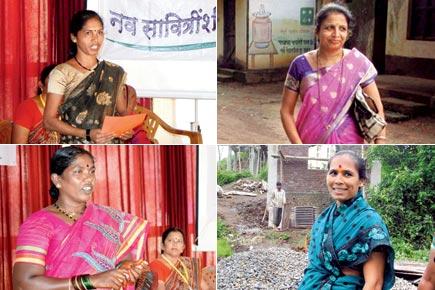
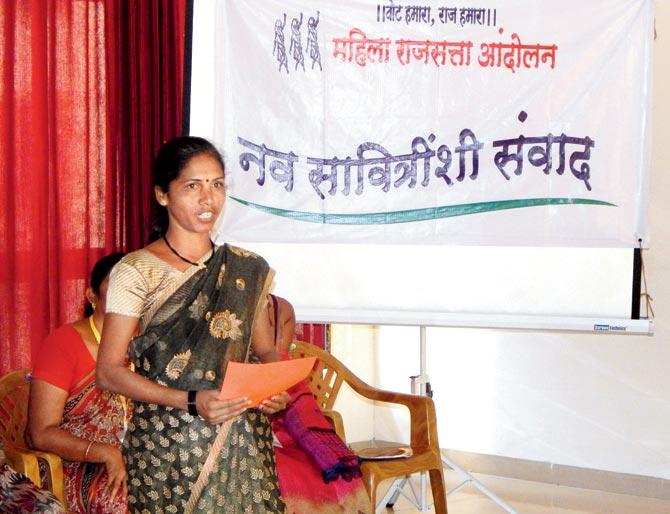 Suvarna Junghare, Satara district
Suvarna Junghare, Satara district
 Earthy and evocative are the 24 voices of the sarpanchs, showcased in a just-released book, Madame Sarpanch. These are vignettes of women's lives in remote villages with a 1,000-strong population each. This is stuff not featured in 'mofussil' news or the Maharashtra government narrative, but insights shared by gutsy, persevering women who have managed to claim their share of decision-making in the state's rural landscape.
Earthy and evocative are the 24 voices of the sarpanchs, showcased in a just-released book, Madame Sarpanch. These are vignettes of women's lives in remote villages with a 1,000-strong population each. This is stuff not featured in 'mofussil' news or the Maharashtra government narrative, but insights shared by gutsy, persevering women who have managed to claim their share of decision-making in the state's rural landscape.
Madame Sarpanch is an ongoing documentation effort by Resource and Support Center for Development (RSCD), a Navi Mumbai-based non-governmental trust, which feels strongly about amplifying the journey of women who have participated in local self-government bodies at the village level, considered the cornerstone of Indian democracy. Considering the 28,813 gram panchayats in Maharashtra, of which 14,000 have women heads, RSCD's documentation exercise has a long way to go. The support center, which runs the Mahila Rajsatta Andolan (MRA) campaign for women's enablement in electoral politics in 20-odd districts of Maharashtra, is working towards integrating untapped voices. While the current Marathi edition (R150) is funded by a donation received from social worker Kamal Vichare, 85, an improved one is aimed at better production value and an English commentary reaching out to policy makers. Bhim Raskar, RSCDâu00c2u0080u00c2u0088director and brain behind Madame Sarpanch, says: "The idea is to celebrate the resilient women who are capable of holding the post. Their energy is a source of strength for urban, city-bred people too." He recalls pan-India examples of similar documentation work including Hunger Project India which is functional in six Indian states and the Gram Shasini mission in Gujarat - which, he feels, demolishes the stereotype of women sarpanchs being a front for their husbands.
Madame Sarpanch is a validation of all those who supported the constitutional amendment which gave access to 33 per cent reserved seats for women in Lok Sabha and state constituent assemblies. States like Maharashtra have increased this quota to 50 per cent in Panchayati Raj institutions. "As assertive women sarpanchs speak to us through this book, the logic behind reservation is vindicated. It is not that women don't have to deal with other village realities. Like men, they too face problems; they encounter bias and discrimination because of reservations. But, their legitimacy, their right to lead a constituency is not debatable anymore," adds Vijay Valanju, who looks after the MRA publications designed to make women representatives aware of what can be accomplished within the government welfare schemes and what more can be demanded at the policy level. One of MRA's periodicals, Rajsattetlya Karbharni published for the last 16 years makes women cognizant of the grander stakes in state politics which women sarpanchs can't be naïve about. Similarly, MRA's BOSS correspondence course - so far taken by 7,000 elected women - focuses on the governance skills required for the newly elected.
ADVERTISEMENT
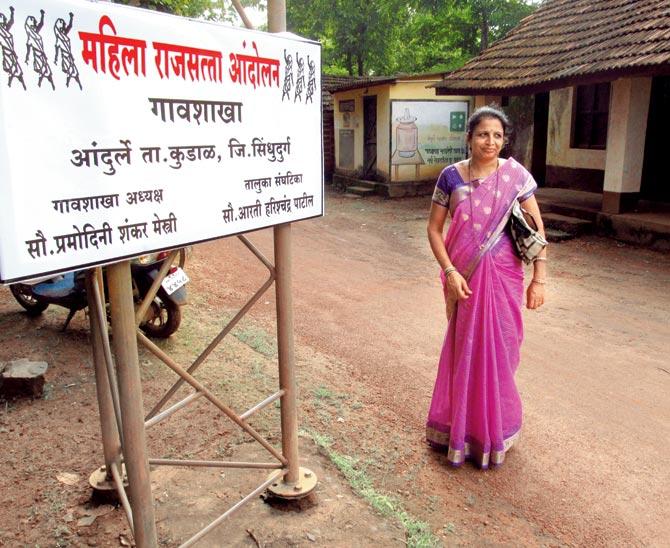
Arati Patil, Andurle
Presentation skills, grassroots wisdom and the faith in the gram panchayat system reflect in Madame Sarpanch. Although sarpanch accounts are not well-written (stories need tighter editing with richer photographic coverage of sarpanch field work; the urban flourish superimposed by the note taker-summarizer needs to be shed), yet the voices make sense in their raw, imperfect, free-flowing narrative form. The very first story of Tulsabai Ramlu Sankwad, 42, representing the far-off Arjapur (Nanded district) sets the tone.
A representative of the nomadic Masanjogi tribe, Tulsabai is proud of her acceptance as a villager and then a leader. For her, a defining moment was when she hoisted the flag on the Independence Day in her village. For someone who gathered food by way of alms offered during funeral rites, this post is an opportunity to be factored into the village hierarchy. "I have walked from the funeral ground to the Gram Panchayat office. It was so unbelievable and revolutionary for me, and for my fellow 'untouchable' Masanjogis that now field work seems relatively easy. I have gained enough strength to cross the remaining bridges," she told this columnist.
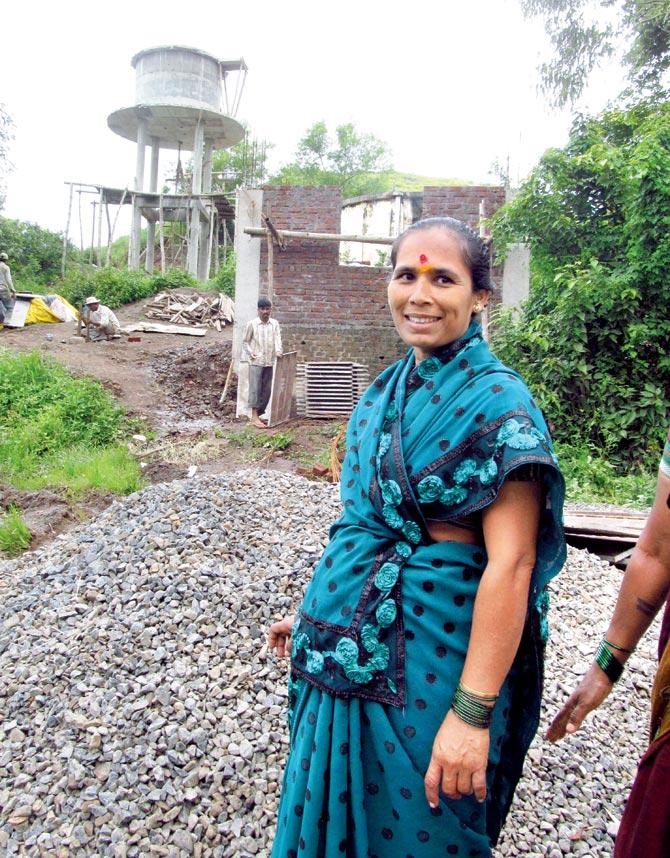 Gita Patil, Bhatanvadi
Gita Patil, Bhatanvadi
A similar liberation is recalled by the 12th standard pass Nayani Bhadu Palkar, 31, of Pal village in Sindhudurg district, belonging to a scheduled caste, for whom the last four and a half years were devoted to making women attend gramsabha meetings to discuss issues like rationed food or public toilet construction. When Palkar contested the sarpanch elections, she belonged to the Nationalist Congress Party, but later she crossed over to the Congress. "What matters is that my work continues unhindered. As I serve the last six months of my tenure, my focus is rain water storage," she declares.
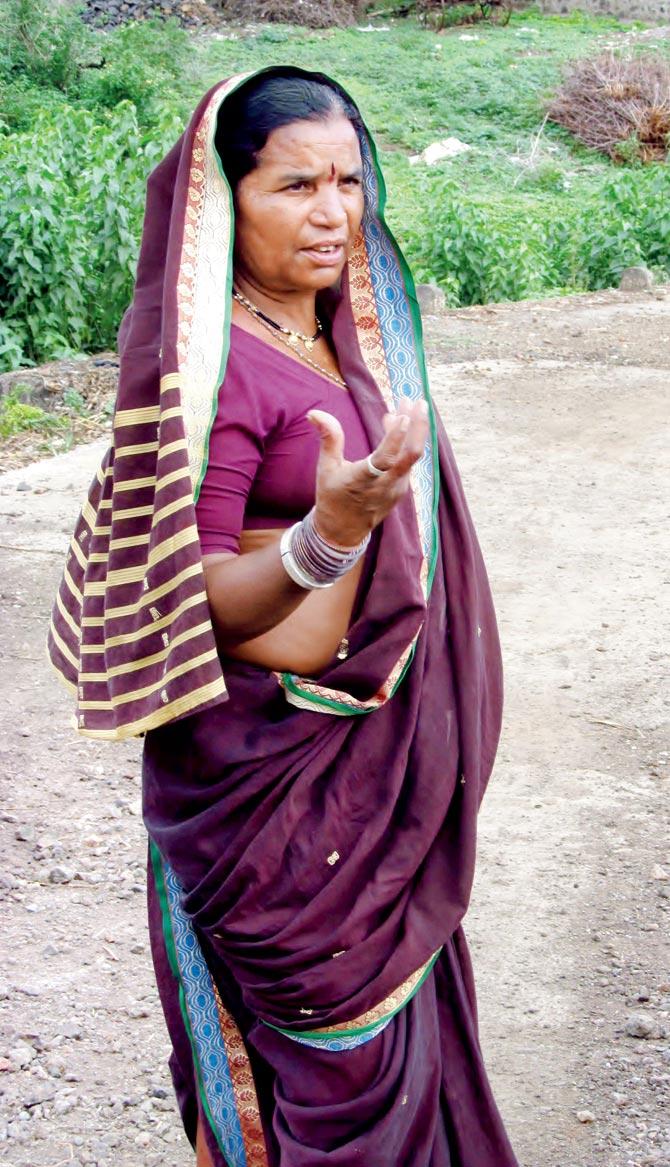 Vimalbai Magre, Varkhedi
Vimalbai Magre, Varkhedi
Many like Palkar are open about their reasons for choosing one political party over the other. Seventh standard-pass Pushpa Zade, 43, the deputy sarpanch in Yelakeli (9 km from Wardha) feels political outfits are "unavoidable." "I belong to the Congress, and have no problem in approaching an MLA and MP who represent the BJP. At the end of the day, I will have to work towards providing the basics of water and vegetable supply." Zade, hailing from the Other Backward (Teli) Caste is proud of her success in curbing the illicit liquor menace in Yelakeli.
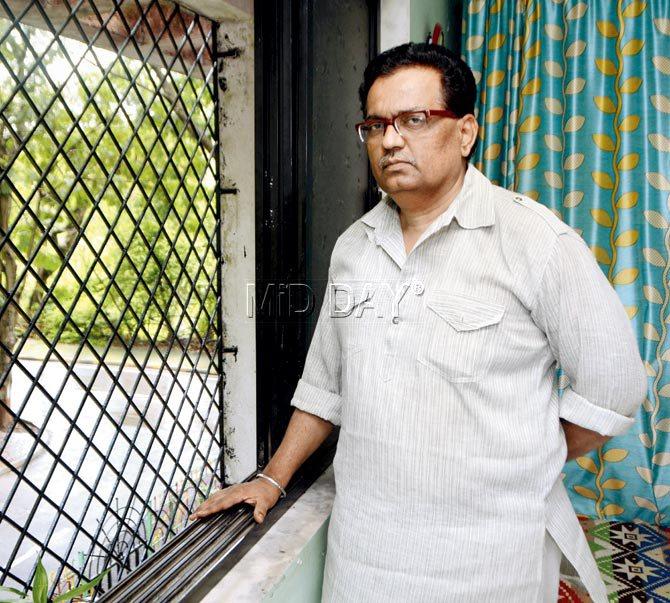 Bhim Raskar, Director, RSCD. Pic/Sneha Kharabe
Bhim Raskar, Director, RSCD. Pic/Sneha Kharabe
Each has a sunshine story to share. While Rekha Tapre is proud of ridding Taprewadi in Pune district of the daily chore of carrying potable water from long distances, Savita Aande (Savanga, Amravati district) literally travelled many miles to curb open defecation. "My husband [a Panchayat member] and I would 'catch' people do their 'jobs' in open spaces in the morning hours." Suvarna Junghare from Savli, Satara district, is happy about her push in finishing the tar road connecting Dalit households with the rest of the village. She had a personal moment of victory too - she completed her graduation 25 years after dropping out of school in Class 9.
The educational profiles of the women sarpanch vary drastically. While Kiran Alone, 30, (Chhota Nagpur, Chandrapur district) has a medical orientation as she also is an ASHA (Accredited Social Health Activist) worker, Sharada Gaydhane, 34, works in a bank while being the sarpanch of Bela (Bhandara). Fifty-year-old Zubeida Tadvi (Kauli, Aurangabad district) has no schooling on her CV, but has networking skills that have resulted in the infrastructure development of her village.
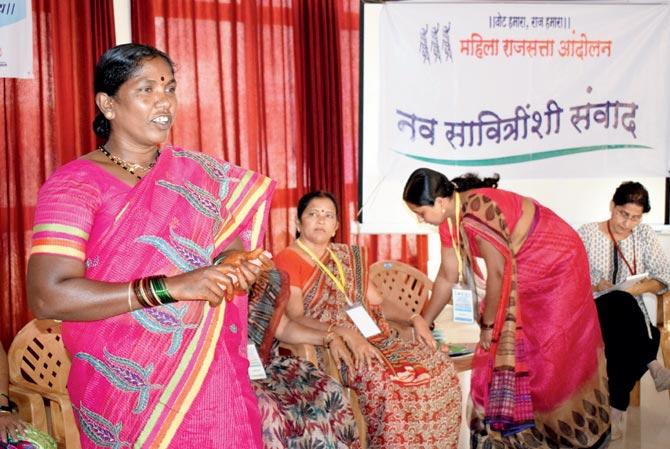 Tulsabai Ramlu Sankwad, Arjapur, Nanded district
Tulsabai Ramlu Sankwad, Arjapur, Nanded district
The Muslim Bhill community representative's interview in Madame Sarpanch stands out because of her candid views. "Those who oppose reservations, end up opposing women who are elected in a reserved seat. We waste a lot of energy in building the initial trust," says Talvi.
Matriculate Sushma Aagle, 28, feels the BOSS course or similar orientations help a sarpanch be better prepared for public interface. Her success in resolving 27 disputes in Kumbhari (district Akola) speaks for itself, not to forget the R300,000 prize her village won under the Mahatma Gandhi Tanta Mukti (dispute-free) Village scheme.
Madame Sarpanch is a buoyant look at Maharashtra's villages and its women, who despite being acutely aware of the realities of administration, retain their zeal to contribute, lead and make a difference!
Sumedha Raikar-Mhatre is a culture columnist in search of the sub-text. You can reach her at sumedha.raikar@gmail.com
 Subscribe today by clicking the link and stay updated with the latest news!" Click here!
Subscribe today by clicking the link and stay updated with the latest news!" Click here!







